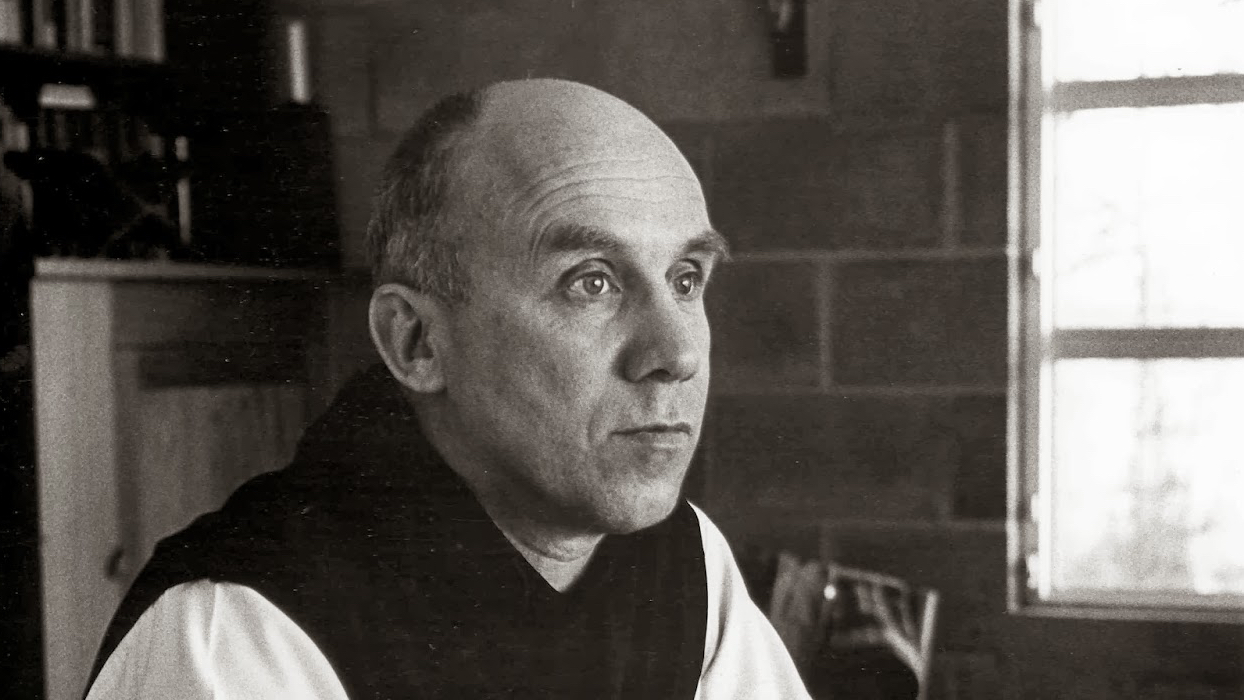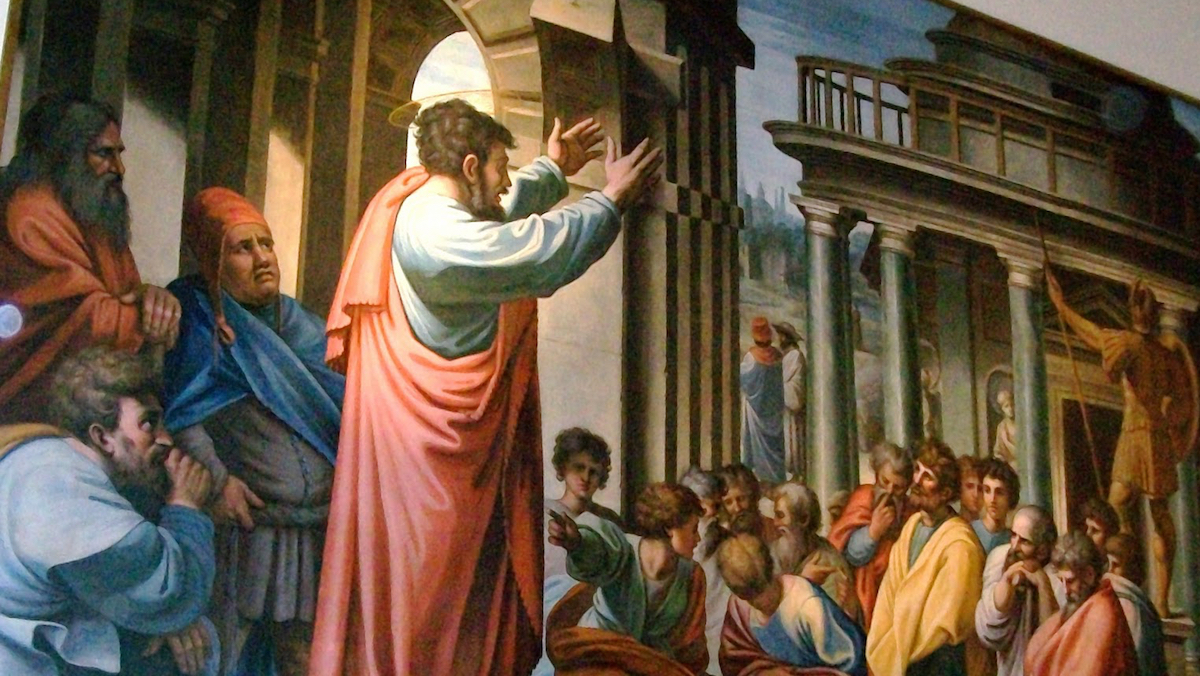On March 19, 1958, a Trappist monk and mystic, while standing at a busy street corner in Louisville, Kentucky, experienced what has come to be known as his Fourth and Walnut Street moment.
In his private journal, Thomas Merton reflected:
I was suddenly overwhelmed with the realization that I loved all those people, that they were mine and I theirs, that we could not be alien to one another even though we were total strangers…It was as if I suddenly saw the secret beauty of their hearts, the depths of their hearts where neither sin nor desire nor self-knowledge can reach, the core of their reality, the person that each one is in God’s eyes. If only they could all see themselves as they really are. There would be no more war, no more hatred, no more cruelty, no more greed….I suppose the big problem would be that we would fall down and worship one another.
Thomas Merton’s recognition that love of God and love of neighbor are inseparable is a powerful one.
In Matthew’s Gospel (22:34-40), isn’t that exactly what Jesus was trying to convey during his confrontation with the Pharisees? A good speaker knows his or her audience. Jesus knew the Pharisees as skilled practitioners of religion. Today, we might know them as the professorial class or of those having great knowledge. Having a keen awareness of the 613 precepts in the Torah, they sought to do God’s will by following the law given them through the covenants.
Jesus does not fault them for doing so. However, in a perfectly orthodox and traditional way, Jesus does appeal to their hearts by combining the instruction given in Deuteronomy 6:5 (…and you shall love the Lord your God with all your heart, and with all your soul, and with all your might.) with that found in Leviticus 19:18 (…but you shall love your neighbor as yourself…).
Again, while not faulting them for their adherence to the minutiae of the law, Jesus’ remarks do indicate that their religious practice had become too “head driven” and not “heart driven.”
Perhaps this is what Jesus is saying: If our practice of religion is merely a mental exercise or one of following numerous precepts, we have missed the boat! But for those who continue to insist that it is, perhaps a closer study from the Book of Exodus (22:20-26) is in order. There, we find the chosen people being reminded of how they were once aliens in the land of Egypt and that it was a compassionate God who saved them from their distress. Furthermore, it is in this same and compassionate way that God now commands them to treat the widows, orphans, and debtors in their midst.
Each of us should take this to heart.
On this day and each of our tomorrows, Jesus frames what should become our mindset, if it is not already. In doing so, what He desires for us is a multitude of Fourth and Walnut Street moments.
But these moments will come to us not simply because we have kept the commandments that we are bound to keep. Rather, they will flow from our faithfulness and manifest themselves in acts of love—-toward our neighbor.
Jesus asks us the same question he asked Simon Peter: Do you love me?
And if our answer is yes, He invites us to walk with Him and minister to His people. In doing so, our response becomes that of Saint Teresa of Calcutta: Everything we do, we do for Jesus.
And in each moment of loving our neighbor, as our hands and arms and feet become his, Jesus continues to reveal and pour out His love—-for us!
In ministry, I see this not some of the time, but all of the time! Not long ago, I walked into a hospital room thinking that I would pray with and distribute Holy Communion to a woman. As I entered her hospital room, her glance quickly turned toward me and she told me: “I had been praying that you would come.” Prior to entering her room, I thought that my role was to minister to her. In truth, however, the opposite was true. She was ministering to me. It was God’s face that was looking at me.
For each of us, when we assist and love others, it is the same. When we minister to our children and families, we do it for Him. When we minister to our fellow parishioners, we do it for Him. When we witness in the public square for the unborn and countless others who have been beaten down, we do it for Him. In all that we do for others, we do for God!
This week, let us thank God for each of our Fourth and Walnut Street moments. And may we pray for many more.








